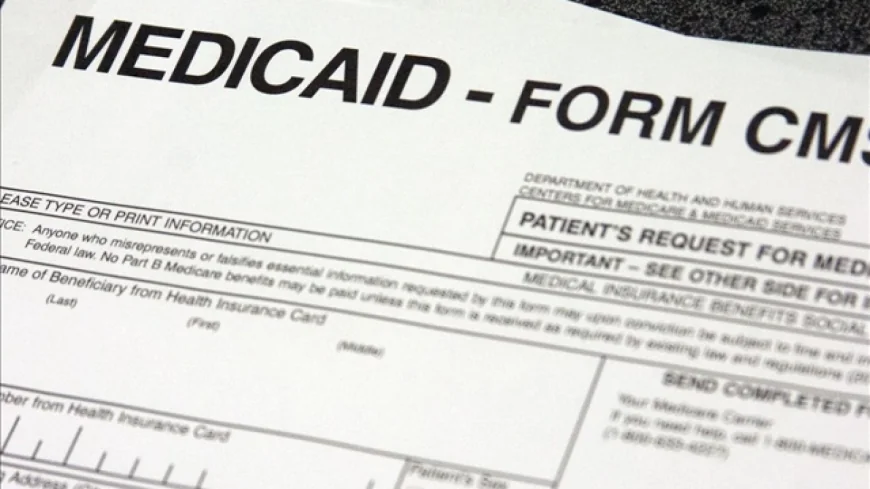‘I had to give up income to care for her’: Richmonder talks Medicaid cuts, taking on caretaker role

RICHMOND, Va. (WRIC) -- After the United States Senate narrowly passed federal budget cuts to Medicaid on Tuesday, July 1, some Virginians are waiting with baited breath for how this will impact their government-assisted healthcare coverage.
The cuts come as part of the Trump administration's "Big Beautiful Bill." The bill was sent back to the House of Representatives to vote on.
Katina Moss, a born and raised Richmonder, is a former Hopewell High School teacher with two master's degrees in educational leadership and educational media and design.
She said she never thought she’d need a safety net program like Medicaid. But when she stepped into a caretaker role for her mother, she realized she needed some help.
“My mother has always been very healthy and vibrant and independent," Moss said. "I’m looking at her and she needs support.”

Katina Moss and her mother.
Around eight years ago, doctors found a tumor on Moss’s mother’s spine, leading to three spinal surgeries in just 12 days. Moss said her mother was in the hospital for two months, trying to do everything from learn how to walk again to sitting up in bed. Around that time, Moss took on the role as her caretaker.
“Since I was the self-employed child, I was the one who able to provide a lot of support in terms of her appointments," she said.
Moss left her teaching job after 10 years in 2014 to create her own business in education consulting, leaving behind her employee benefits. During the COVID-19 pandemic, her in-person consulting job hit a stand-still, so she took a job in retail working in ecommerce at a grocery store in the meantime and to make ends meet.
When Moss applied and qualified for Medicaid, it wasn't immediate relief.
“I’m not going to say that it was the easiest thing," she said. "I’m a twice master degreed educator, I taught public school. I’m the child of business owners so a lot of self-reliance and self-determination there. A lot of just, I guess, traditional training on not relying on the government...That was a fight that I supported because I thought that it was important for people to go to the doctor. But it wasn’t necessarily applicable to me. But then it became applicable to me.”
Testifying before Congress in June, Moss talked about the financial impact.
“Daughters like me would easily make that choice again because we love our moms and we would do anything for them," she said in Washington. "But the reality was, I had to give up income to care for her... I am one of the 629,000 Virginians who have healthcare thanks to Medicaid expansion.”

Katina Moss and her mother.
According to the Congressional Budget Office (CBO), what the Senate passed on July 1 would reduce federal Medicaid funding by an estimated $930 billion over the next decade. It's around 10% of its total budget.
The CBO said this will increase the number of Americans without health insurance by 12 million by 2034, even if they qualify for Medicaid. And rather than filing paperwork once a year, it would change to twice a year.
For Moss, the risk is big.
“Life can happen in a way that I can’t help and then I can’t go to the doctor because I can’t afford it," she said. "And that’s when it gets really real. It got really real for me. It’s like, well how come we all can’t just go to the doctor? We need to be healthy, we need to live. We all need medical care. That should be something that everyone has access to.”
President Donald Trump is hoping the bill is passed by July 4.
Moss told 8News her mother is doing well and will be turning 85 years old soon.

 VENN
VENN 





